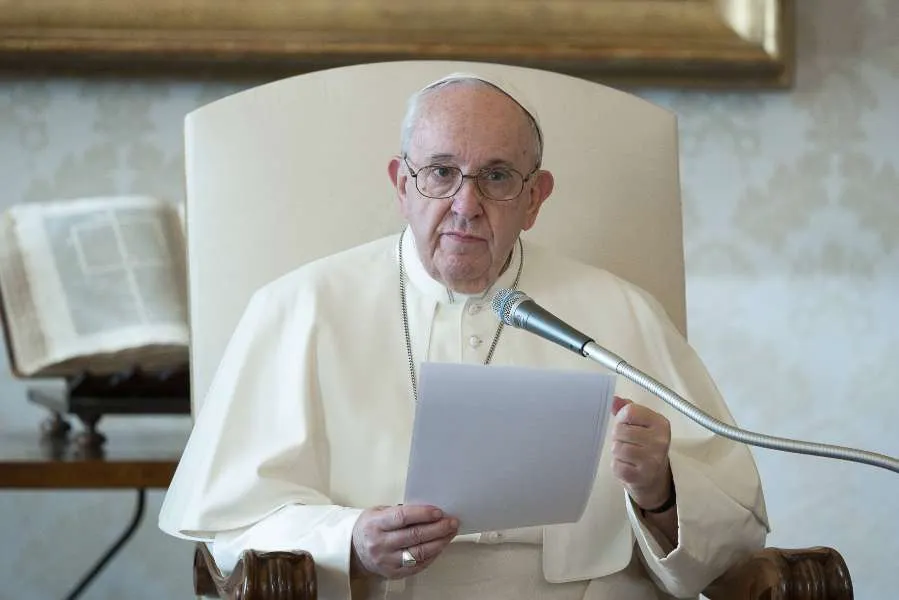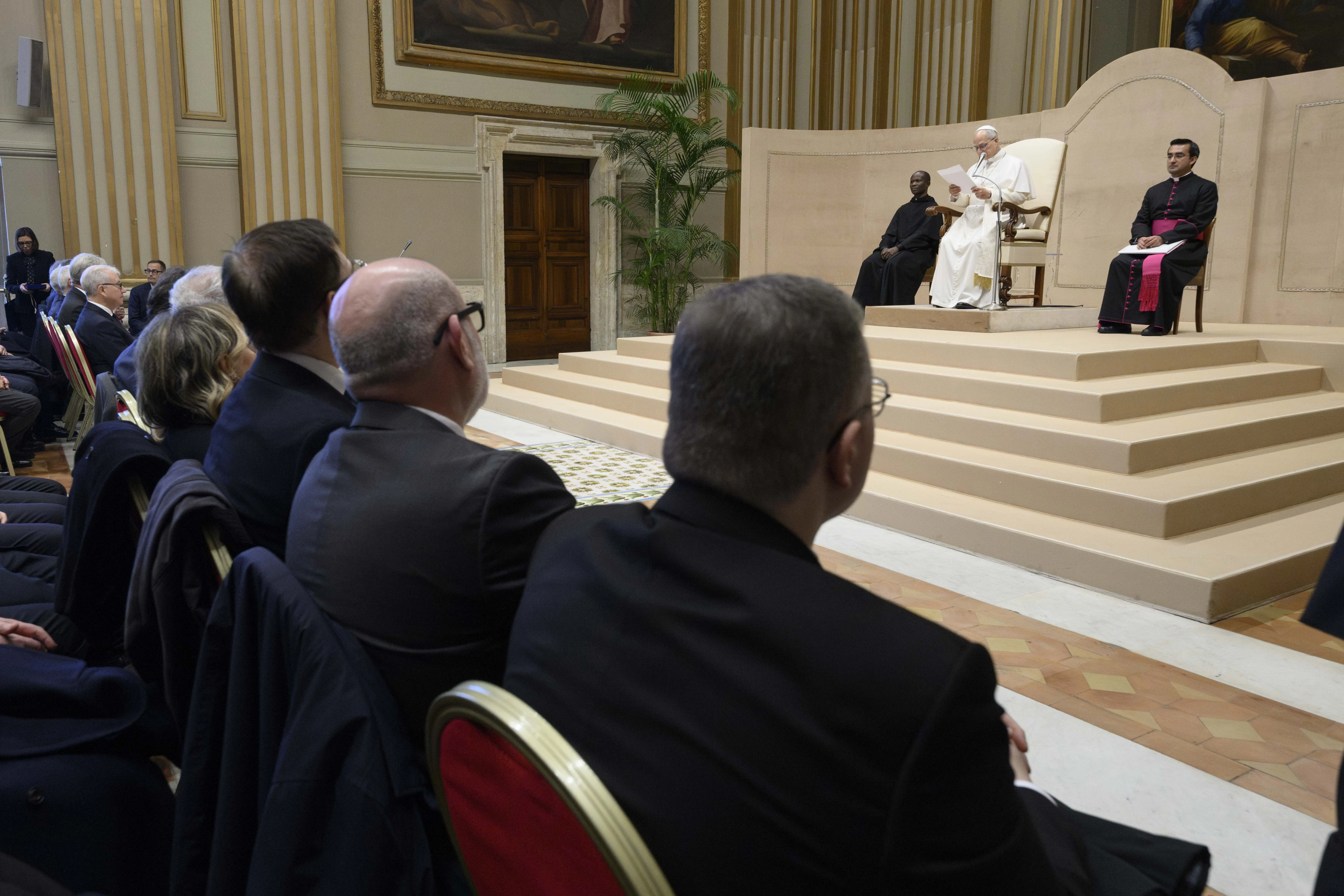“At times miracles happen: men and women are reborn. … For God’s grace changes lives: He takes us as we are, but He never leaves us as we are. … God did not wait for us to convert ourselves before beginning to love us, but He loved us a long time before, when we were still in sin.”
Pope Francis said that God’s love is like that of a mother who goes to visit her son in prison, adding “like this, we are more important to God than all the sins we can commit, because He is father, He is mother, He is pure love, He has blessed us forever. And he will never stop blessing us.”
Continuing his cycle of catechesis on prayer, Pope Francis focused his reflections this week on blessing.
A blessing can accompany a person who receives it throughout his or her entire life and disposes the person’s heart to allow God to change it, the pope explained.
“The hope of the world lies entirely in God’s blessing: He continues to desire our good, He is the first, as the poet Péguy said, to continue to hope for our good,” he said, referencing the 19th-century French poet Charles Péguy.
“God’s greatest blessing is Jesus Christ. This is the great gift of God, His Son. It is a blessing for all humanity; it is a blessing that has saved us all. He is the Eternal Word with which the Father blessed us ‘while we were yet sinners’: the Word made flesh and offered for us on the cross,” Pope Francis said.
He then quoted St. Paul’s letter to the Ephesians: “Blessed be the God and Father of our Lord Jesus Christ, who has blessed us in Christ with every spiritual blessing in the heavens, as he chose us in him, before the foundation of the world, to be holy and without blemish before him. In love he destined us for adoption to himself through Jesus Christ, in accord with the favor of his will, for the praise of the glory of his grace that he granted us in the beloved.”
The pope said that we too can respond to “the God who blesses” by blessing through prayers of praise, adoration and thanksgiving.
He said: “The Catechism states: ‘The prayer of blessing is man’s response to God’s gifts: because God blesses, the human heart can in return bless the One who is the source of every blessing.’”
“We cannot only bless this God who blesses us, we must bless everything in Him -- all the people -- bless God and bless our brothers and sisters, bless the world,” Pope Francis said. “If we all did this, surely there would be no wars.”








